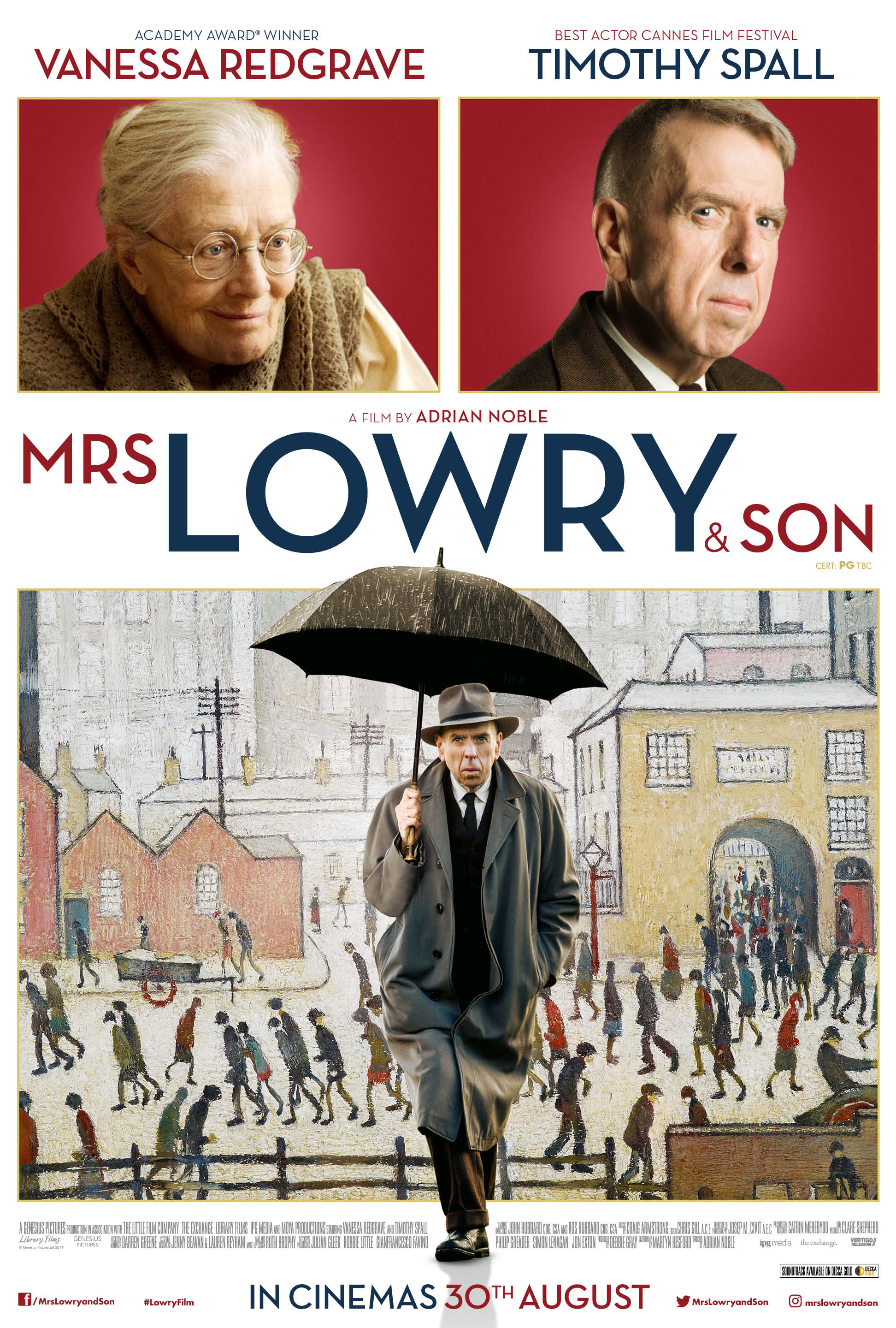
A London gallery owner requests to see Lowry’s paintings, “and if he likes them, there’s a possibility of [L.S.] having an exhibition.” Elizabeth’s not fazed. “Save it for a rainy day,” she says, tight-lipped, returning to her book. “Everyone deserves a little encouragement now and then, I suppose.” And so it goes, the son desperately attempting to escape his mother’s tight grasp while relentlessly pursuing his one true passion. To reiterate: “I am a man who paints,” he says repeatedly. “Nothing more, nothing less.”
This back-and-forth becomes tiresome, especially considering Noble never truly digs deep into what made Lowry so inspired by the factories surrounding him, the “common folk,” the very thing his mother so despised. Shades of that dichotomy are touched upon but never fully explored: L.S.’s love for the industrial landscape and his people versus Elizabeth’s contempt for it all and her bitterness that she’s never managed to escape it.
That being said, the director is no stranger to all things classical, having adapted Bill Shakespeare’s A Midsummer Night’s Dream and Oscar Wilde’s The Importance of Being Earnest (oddly, the two sole films on his resume, prior to this one – his attention has recently been on those grand Metropolitan Opera productions). There is a palpable passion and love for its two protagonists running through the highly-theatrical narrative. He stages several memorable sequences: L.S. being followed by a group of street children, cheekily playing with them; Lowry’s infamous collection of chiming clocks, all going off at different times; Lancashire’s citizens, frozen in time, as Lowry walks through them, wandering through a live painting. There’s a truly touching scene involving L.S. showing his mother a painting of sailboats.
“…a palpable passion and love for its two protagonists running through the highly-theatrical narrative…”
Speaking of, the conversations between the two actors, which make up the bulk of the film, are what truly tie it all together, transcending (just) the lack of depth. Vanessa Redgrave is a legend, and here again effortlessly portrays a gamut of emotions with subtle gestures, literally barely moving a muscle. Her Elizabeth is bitter, mournful, unable to keep up with the changing times, self-pitying (“…waiting for inevitable…”), grateful for meals she can digest, terrified to be left alone, swiveling from sympathetic to casually callous within seconds. Spall–who played another artist, J.M.W. Turner, in Mike Leigh’s superior Mr. Turner–similarly can do no wrong. Shoulders slouched, eyes ridden by years of both internal torment and inspiration, he’s magnificent. The duo’s a joy to behold, transcending the underdeveloped nature of their characters.
“Let’s not be sentimental,” Elizabeth tells her son at one point. I wish someone would’ve given Noble the same advice. Craig Armstrong’s sappy soundtrack blares cues, informing us how to feel. Melodramatic “fadeaway” flashbacks to 1894 don’t help the already-stagnant narrative. The dialogue spells everything out, leaving little room for subtlety. “Jealousy,” Elizabeth comments redundantly after her son storms out of her room.
Mrs. Lowry and Son has an appealing old-school charm and two performances that make it worth seeing. It addresses some well-explored issues of parenthood, living up to parental expectations vs. following your own path, and following your dreams. To paraphrase Lowry’s quote even further, it’s a film that works, if barely. Nothing more, nothing less.

"…an appealing old-school charm, and two performances that make it worth seeing..."

